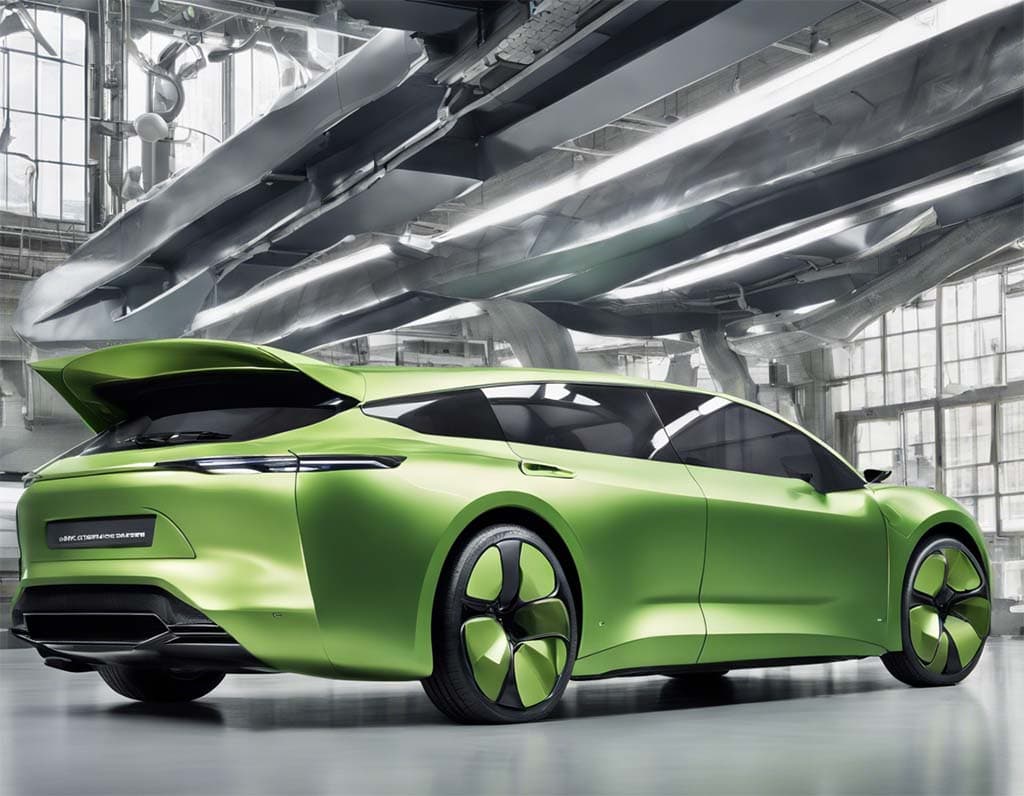The automobile sector is navigating a pivotal shift, energized by an expanding awareness of sustainability and environmental stewardship worldwide. This transition isn’t just a knee-jerk reaction to regulations; it’s part of a larger shift towards a lifestyle that prioritizes environmental health and sustainable practices for the long haul. We explore the significant eco-conscious innovations currently transforming the vehicle industry, ranging from electric and hybrid models to environmentally friendly production methods and beyond.
Electric Vehicles (EVs) Spearheading the Eco-Revolution
Electric vehicles stand at the vanguard of the industry’s shift towards eco-consciousness. Thanks to breakthroughs in battery technology, EVs now boast extended driving ranges, quicker recharge times, and prices that are more on par with conventional vehicles. Innovators like Tesla have blazed trails here, but established car manufacturers such as Ford and Volkswagen are rapidly expanding their electric portfolios, offering designs that meld aesthetics, performance, and emission-free driving. The growing network of charging stations globally further solidifies the practicality of EVs as a green alternative to petrol and diesel vehicles.
Hybrid Vehicles: A Transitional Solution
Hybrids represent a critical intermediary step towards fully electric transport. These vehicles combine traditional petrol engines with electric motors, striking a balance between fuel economy and lower emissions without the full commitment to electric charging infrastructure. Technological advances have led to plug-in hybrids with increased battery capacity, offering a taste of electric driving for daily trips while maintaining the convenience of petrol for longer distances.
Eco-Conscious Manufacturing Techniques
The move towards sustainability encompasses not only the end product but also the manufacturing process. Vehicle manufacturers are increasingly embracing environmentally friendly practices, including the utilization of recycled materials, reduction in water and waste, and the incorporation of clean energy sources like solar and wind into their production facilities. These efforts not only lessen the environmental impact of vehicle production but also pave the way for other sectors to adopt similar practices.
Alternative Fuels and Beyond
The automotive industry’s green evolution is also fostering the development of non-traditional fuels. Hydrogen fuel cells, for instance, present a zero-emission solution with the convenience of fast refueling, suitable for both personal and commercial use. Biofuels, made from organic waste materials, offer another avenue to decrease the carbon footprint of vehicles that still rely on combustion engines.
Green Design and Vehicle Features
Sustainable innovations are increasingly influencing the design and functionality of vehicles. From aerodynamic enhancements and the use of lightweight materials to energy-saving lighting, manufacturers are incorporating features that boost efficiency and lower emissions. Inside the cabin, the shift towards sustainable materials like recycled plastics, bamboo, and biobased fabrics marks a move away from traditional upholstery options, reflecting a holistic approach to eco-friendliness.
Environmental and Economic Impacts
The embrace of green automotive technologies promises considerable benefits for both the planet and the economy. The reduction in emissions from electric and hybrid vehicles can lead to cleaner air quality and a decrease in greenhouse gases, helping to combat climate change. On the economic front, the burgeoning green vehicle sector is generating new jobs in technology and manufacturing, while the expansion of EV charging networks drives innovation in energy management and distribution.
Progressing Towards a Greener Tomorrow
Looking forward, the automotive industry’s dedication to sustainability is expected to gain momentum, fueled by technological innovations, consumer interest, and policy incentives. This commitment to green innovation goes beyond mere compliance with environmental regulations; it’s about redefining the future of mobility in harmony with our environment.
The path to a sustainable automotive future is a collaborative effort, necessitating engagement from manufacturers, policymakers, and consumers alike. By adopting eco-friendly vehicles and endorsing green initiatives, we can collectively foster a cleaner, more sustainable world for future generations.
The road to sustainability is laden with both opportunities and challenges. Nevertheless, through ongoing innovation and cooperation, the vehicle industry is well-equipped to lead the transition to a more eco-conscious and responsible future.

Conclusion: Energizing the Sustainability Journey
The pivot of the automotive industry towards eco-friendly innovations marks a significant shift in societal values towards sustainability and caretaking of the environment. As electric and hybrid vehicles become more commonplace and green manufacturing practices establish new industry norms, we find ourselves at the threshold of a new era in mobility.
This journey towards an eco-friendly automotive future faces obstacles, including the widespread adoption of EVs, advancements in battery technology, and the development of comprehensive charging solutions. Yet, the way forward is illuminated by the collective dedication of automakers, governments, and the public to a sustainable planet.
As we traverse this changing landscape, the individual’s role in supporting eco-friendly automotive choices becomes ever more critical. Through selecting sustainable transport options, advocating for eco-friendly policies, and staying abreast of the latest in green technology, we all have a part to play in fostering positive environmental change.
Ultimately, the shift towards eco-friendly automotive innovations reflects a deeper transformation in our relationship with the Earth. It’s a collective journey towards a future where sustainability and mobility intertwine, propelling us towards a cleaner, greener world.











